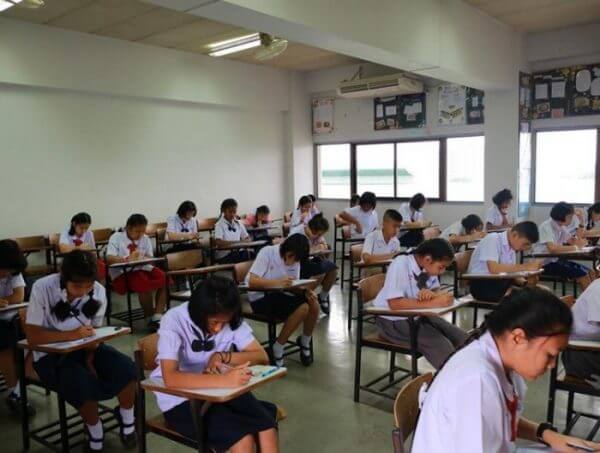
Thailand falls in global English Proficiency Index for fourth consecutive year
Thailand’s English proficiency ranking amongst non English speakers has fallen for the fourth consecutive year.
According to this year’s English Proficiency Index, which was released last week by Swiss based international education company Education First, Thailand ranked in just 89th place, out of 100 hundred countries surveyed.
With an overall score of just 419, Thailand is regarded as having “very low proficiency”.
This year’s ranking is Thailand’s lowest and represents the fourth consecutive year that Thailand’s ranking has dropped.
In 2019, Thailand ranked 74th out of 100, while in 2018 it ranked 64th out of 88 countries included in the index with a score of 48.54.
Education First described the “very low proficiency” ranking as those countries which can introduce oneself simply (name, age, country /regions of origin), understand simple signs and give basic directions to a foreign visitor.
By comparison, a “high proficiency” are those countries which can make a presentation at work, understand TV shows and read a newspaper, where as “very high proficiency” are countries where someone can use nuanced and appropriate language in social situations, read advanced texts with ease and negotiate a contract with a native English speaker
The index found that Thai men scored slightly higher than women, with scores of 48.68 and 47.59, respectively, both still some way short of the global averages of 53.03 for men and 53.23 for women.
Thailand’s lowely score means that with the exception of Myanmar (93rd), it is outperformed by all of its ASEAN neighbours when it comes to English speaking ability.
Singapore (10th, vey high proficiency), the Philippines (27th, high proficiency) and Malaysia (30th Moderate proficiency) were the three best performing countries in ASEAN.
Both Vietnam (65th, low proficiency) and Cambodia (84th, very high proficiency) outperformed Thailand.
Globally, the Netherlands ranked in 1st place, while Denmark (2nd), Finland (3rd), Sweden (4th) and Norway (5th) were all found to have “very high proficiency”.
According to its website the Education First English Proficiency Index calculates a country’s average adult English skill level using data from two different English tests completed by hundreds of thousands of adults every year.
One test is open to any Internet user for free. The second is an online placement test used by Education First during the enrollment process for English courses. Both include grammar, vocabulary, reading, and listening sections.
— © Copyright Thai Visa News 2020-11-25


